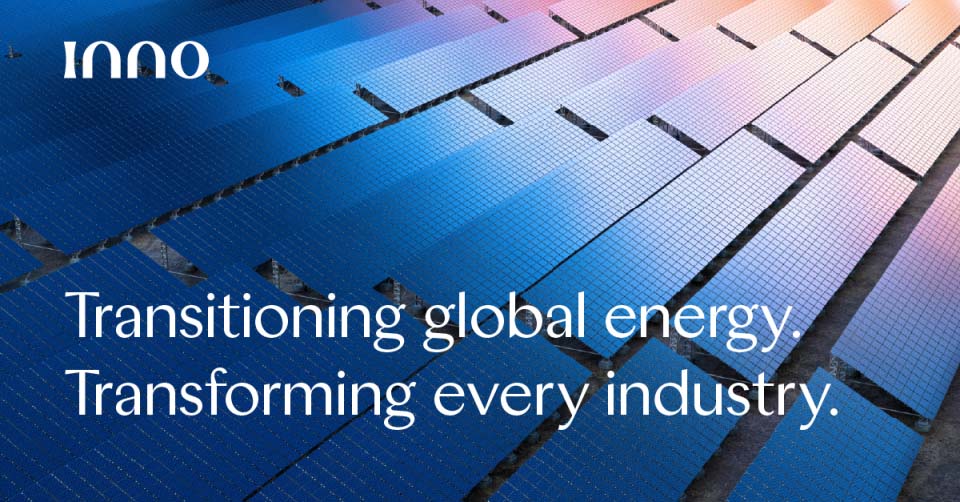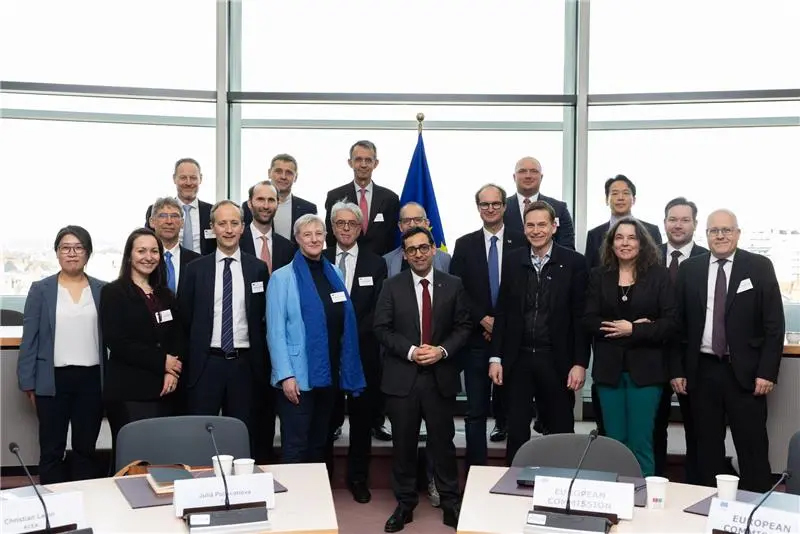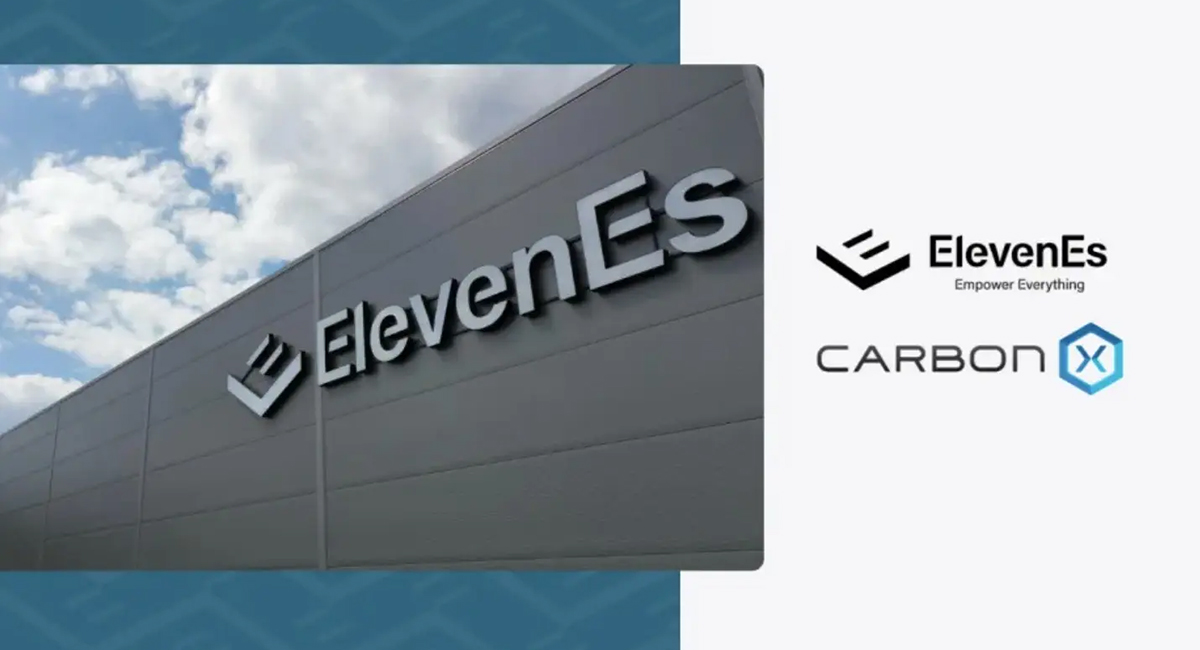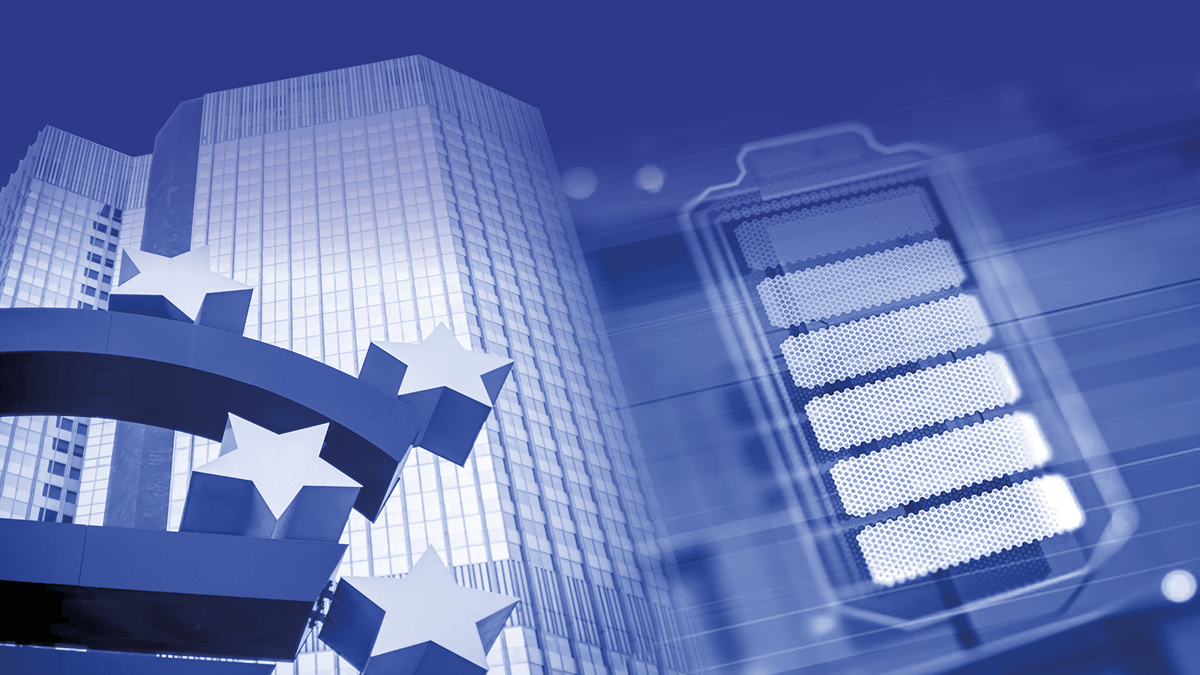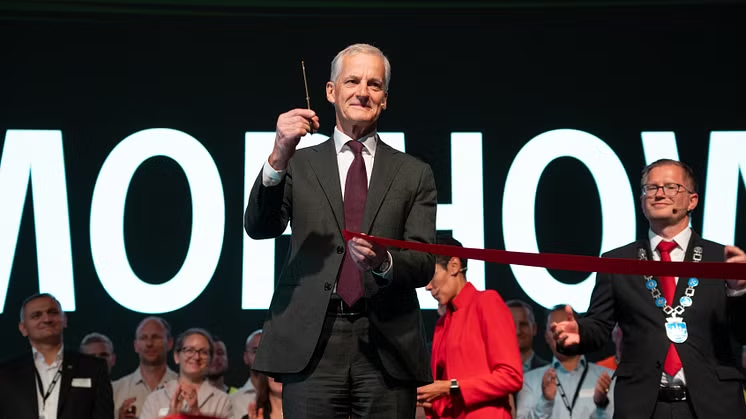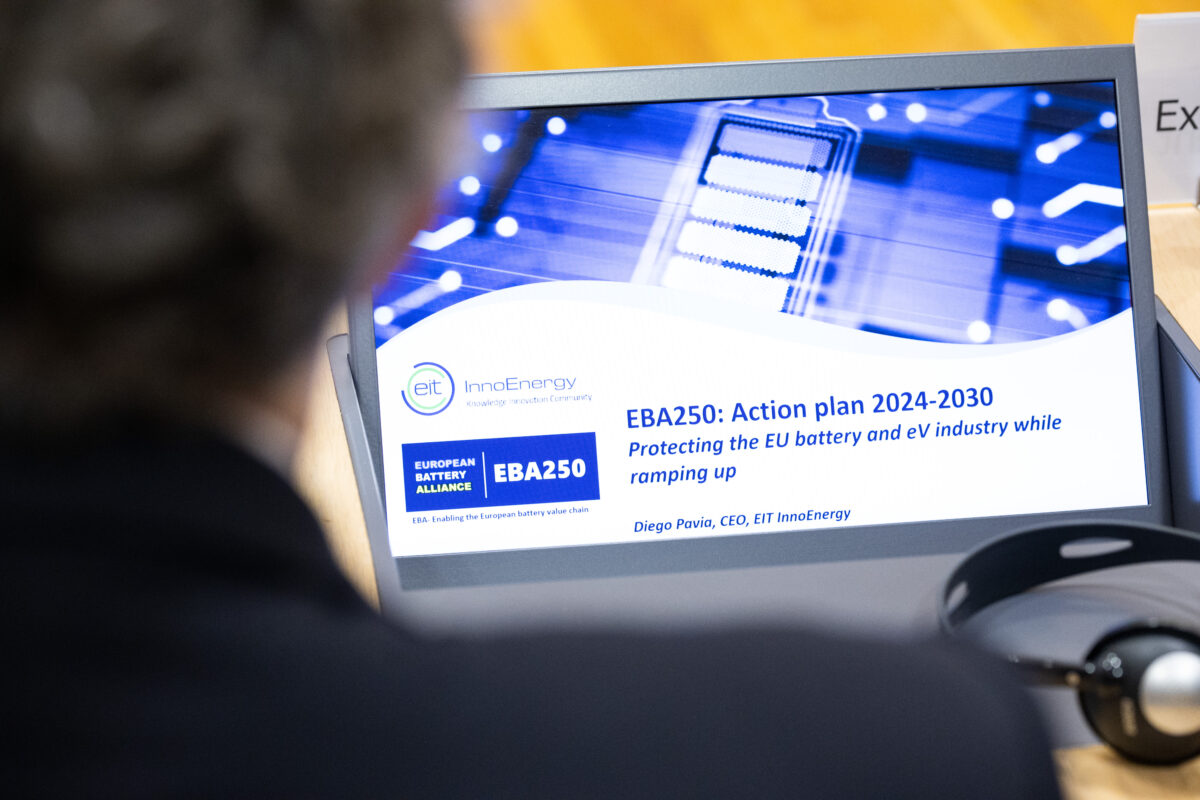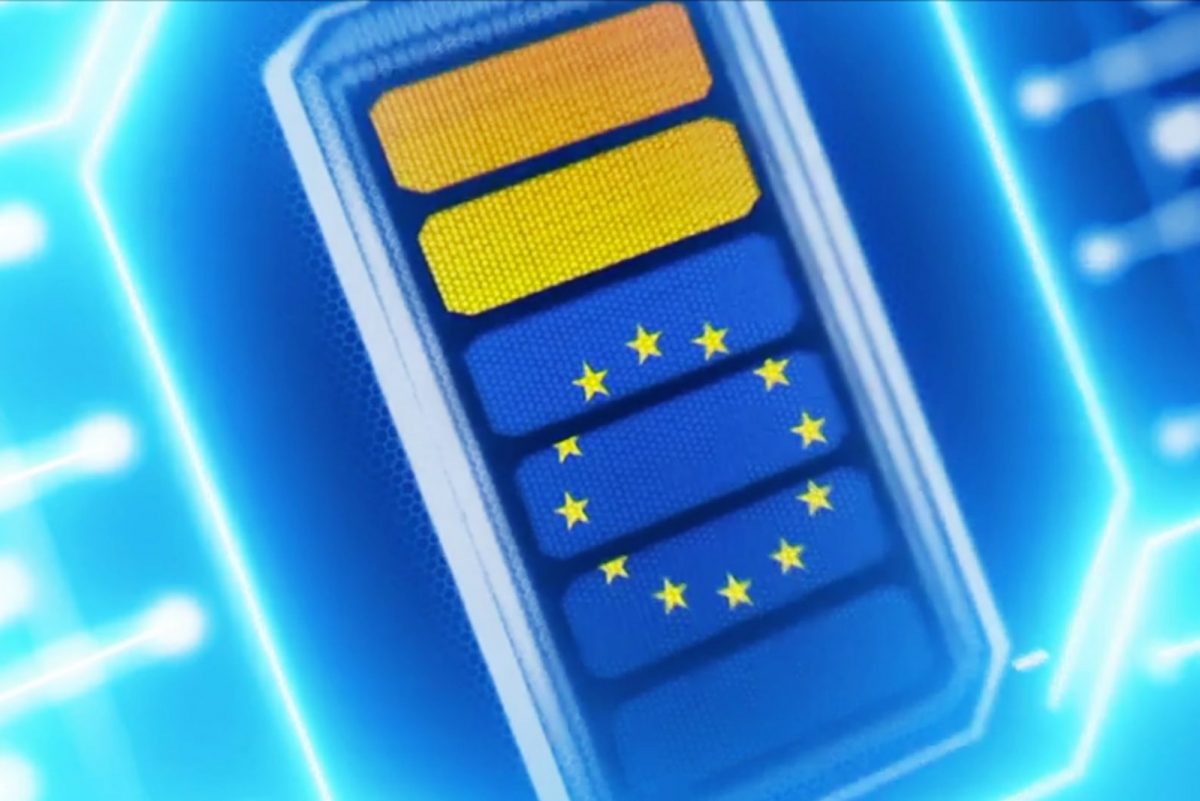
Mar 6, 2023
7th High-Level Ministerial Meeting of the European Battery Alliance
– Adapting Europe’s toolbox, with speed and simplicity, for a business friendlier environment, today and tomorrow
On March 1st, 2023 the European Battery Alliance hosted its 7th High Level Meeting.
The meeting, chaired by Commission Vice-President Maroš Šefčovič focused on new and emergency measures strengthening the global leadership of the European battery industry in the face of the US Inflation Reduction Act and other recent challenges.
The European Commission, represented by Vice President Maroš Šefčovič, Executive Vice President Margrethe Vestager and Commissioner Thierry Breton, the EIB, the EBRD, representatives of 27 Member States and Norway convened with EIT InnoEnergy and selected leaders of the European battery industry.
The objective was to take stock of the status of the European battery value chain and to agree on key emergency measures to foster its global leadership in the face of recent challenges such as the US Inflation Reduction Act.
In conjunction with the preparation by the European Commission of the announced Net-Zero Industry Act, the Critical Raw Materials Act and the EU Sovereign Fund, the EBA250, a European network of 800+ stakeholders in the battery value chain led by EIT InnoEnergy, recommended 7 emergency proposals backed by 15 operational actions.
The package of measures, aligned with the European Green Deal Industrial Plan, forms an emergency toolbox to accelerate and de-risk investments across the value chain, level the playing field with global competition benefitting from recently enhanced support schemes, and puts the focus on transforming the sustainable ambition of the EU into a competitive advantage.
VP Šefčovič stated that: “With 30 Gigafactories announced across our Member States, we have been moving fast towards our open strategic autonomy in this sector, vital to Europe’s net-zero ambitions. In 2022, total investment in the EU’s battery ecosystem topped €180 billion. But we see that other economies have also set their sights firmly on boosting the production of batteries, incentivising the battery and raw materials boom – while in some instances, altering the global playing field. This new reality, combined with the higher price of gas in the EU, naturally affect Europe’s competitiveness and remind us that we must stay laser-focused on supporting investment.”
Diego Pavia, CEO of EIT InnoEnergy said “While we can acknowledge the success of the European Battery Alliance since 2017, this industry is still nascent and the value chain is as strong as the weakest of its link. The global context has changed; it is urgent to adapt the EU toolbox to accelerate and de-risk investments in strategic projects across the European value chain. A set of emergency measures must be implemented at scale, speed and with simplicity.”
4 priorities were agreed upon: acceleration and predictability of industrial permitting, enhanced access to both EU and national funding, rewarding localization and sustainability of battery manufacturing, and boosting skilling for the battery workforce.
On permitting, Mathias Miedreich, CEO of Umicore, insisted that the EU faced a significant disadvantage in industrial permitting, detrimentally impacting time to market: “Speed and predictability in industrial permitting are of the essence. By comparison, it can take around 9 months in Canada compared to double or more in the EU to obtain permits for a comparable battery materials facility”. The EBA proposes to set time limits for permit delivery (6 months), and to organize financial and capacity support to national and local authorities to deliver permits to pre-identified strategic European projects.
On access to EU and national public funding, Thomas Schmall, Volkswagen Group Board Member for Technology said ‘’We need immediately an “IRA matching clause” in Europe including a revised Public State Aid Program. This must be accompanied by competitive prices for sustainable Energy which is crucial for the further implementation of the strategic Battery Industry in the EU. Above all, speed is most of what we need!’’. The EBA proposes to prioritize batteries for the planned rechanneling of existing EU funds and welcomes the announcements by the European Commission that it will put forward new, temporary State Aid rules allowing to support competitive industrial operations in the battery sector and level the global playing field.
With regard to sustainability of battery manufacturing, a key EU ambition and essential element of the long-term competitiveness and industrial leadership of the EU battery industry, Paolo Cerruti, Co-founder of Northvolt said “we see a real opportunity for a European IRA response to stimulate a virtuous circle of investment, which will increase regional content and enable a decarbonized supply chain”. The EBA proposes to implement a sustainable production bonus (14eurkwh) for the most sustainable 200GWh of manufactured batteries.
Last, access to skilled workers remains a bottleneck for the growth of the European battery industry. With the EBA Academy, the value chain has a platform to deploy training at scale. However, funds need to be deployed locally, in the Member States to finance training, upskilling and reskilling programs. The EBA proposes that Member States earmark and frontload 2% of existing ESF+ funds in 2023-2025.
The detailed EBA proposals are available online:
For more information on the 7th High-level Ministerial meeting, please read Commission Vice-President Maroš Šefčovič’s speech and watch the press conference.
More EBA250 news
InnoEnergy, the driving force behind the EBA250 initiative, introduces today its new brand identity,…
The new EU-funded facility will enhance global raw materials partnerships and access to Critical…
Last week, InnoEnergy and EBA250 represented the battery value chain in Brussels alongside Verkor…
ElevenEs, a European LFP lithium-ion battery manufacturer, has signed a Joint Development Agreement with…
The European battery industry has come a long way since the launch of the…
The 2024 Innovation Fund calls for proposals have been launched this week, with a…
Altris, a pioneering Swedish developer of sodium-ion battery technology, has reached significant milestones that…
Last Friday, Morrow Batteries officially inaugurated the first giga-scale LFP (Lithium Iron Phosphate) cell…
On May 24, 2024, the 8th High-Level Meeting of the European Battery Alliance (EBA)…
Following the recent announcement from EVP Šefčovič on the need to support manufacturing of…
